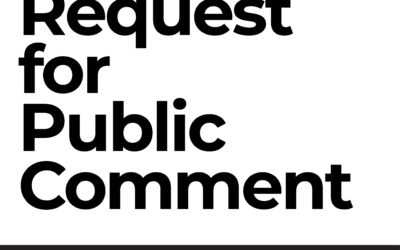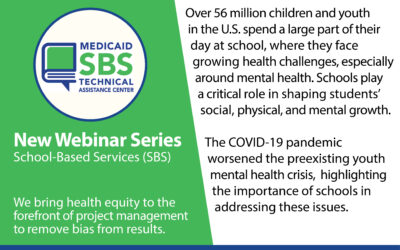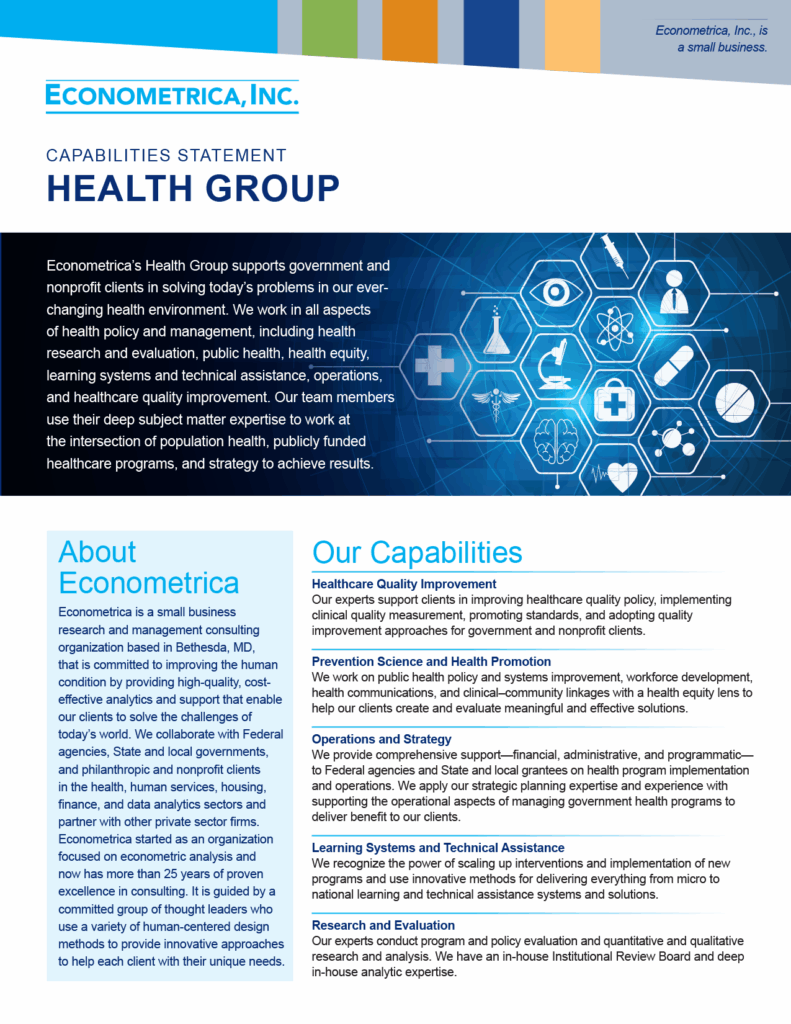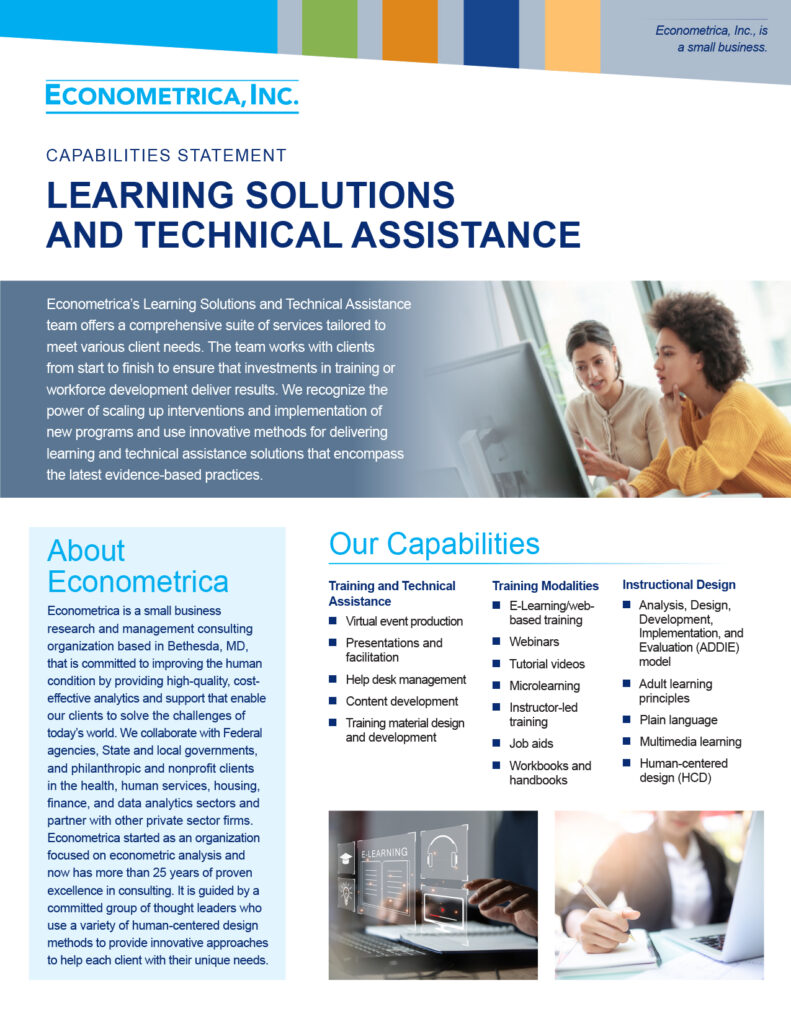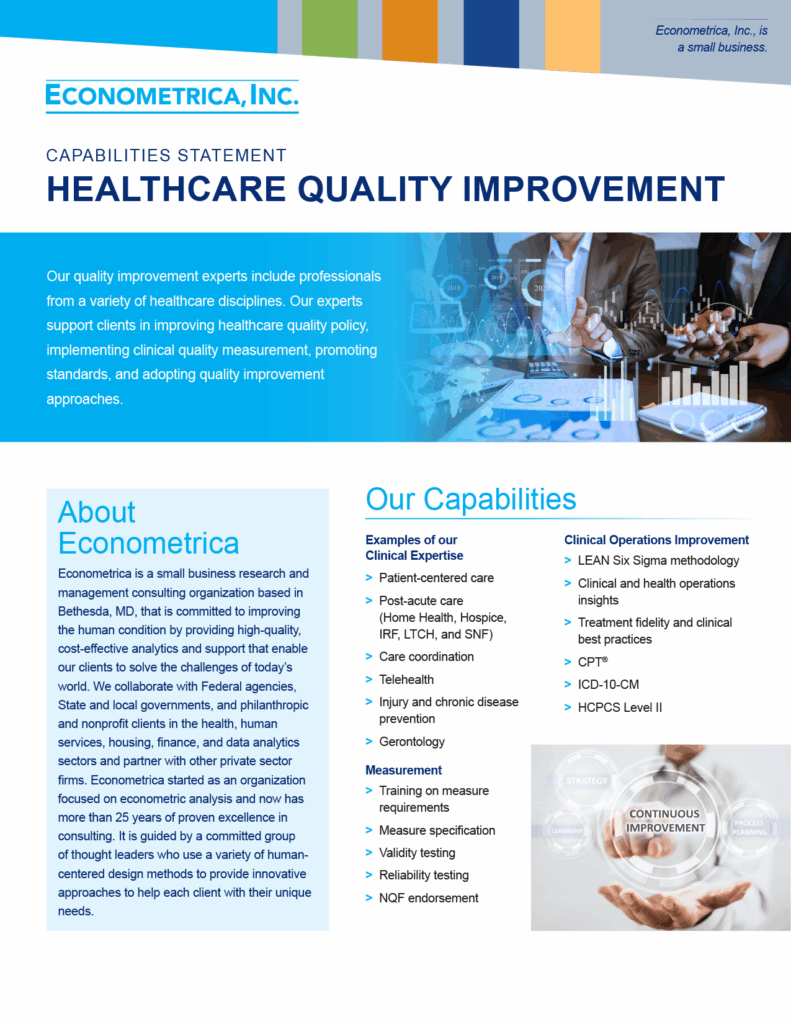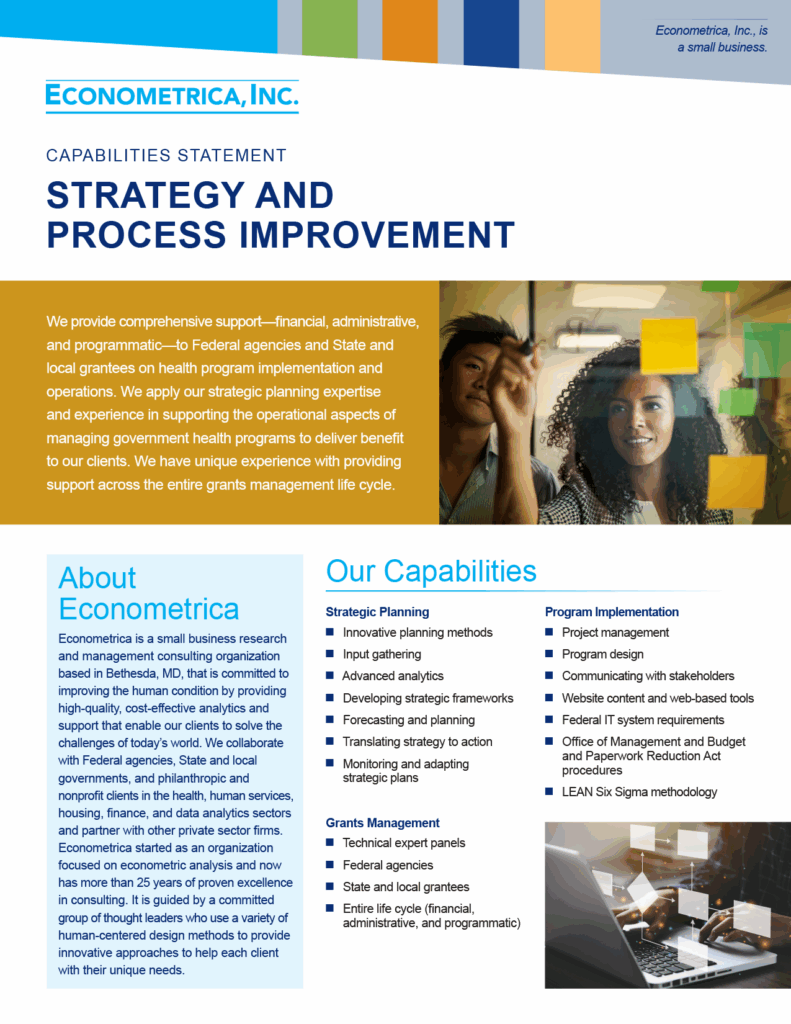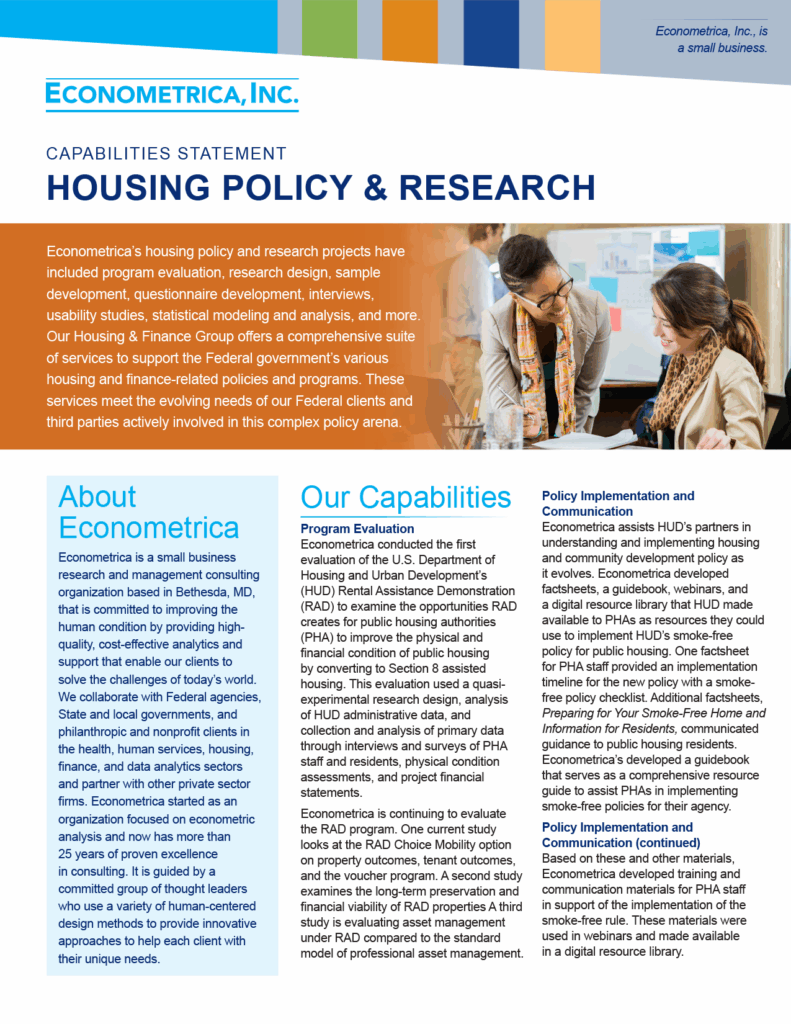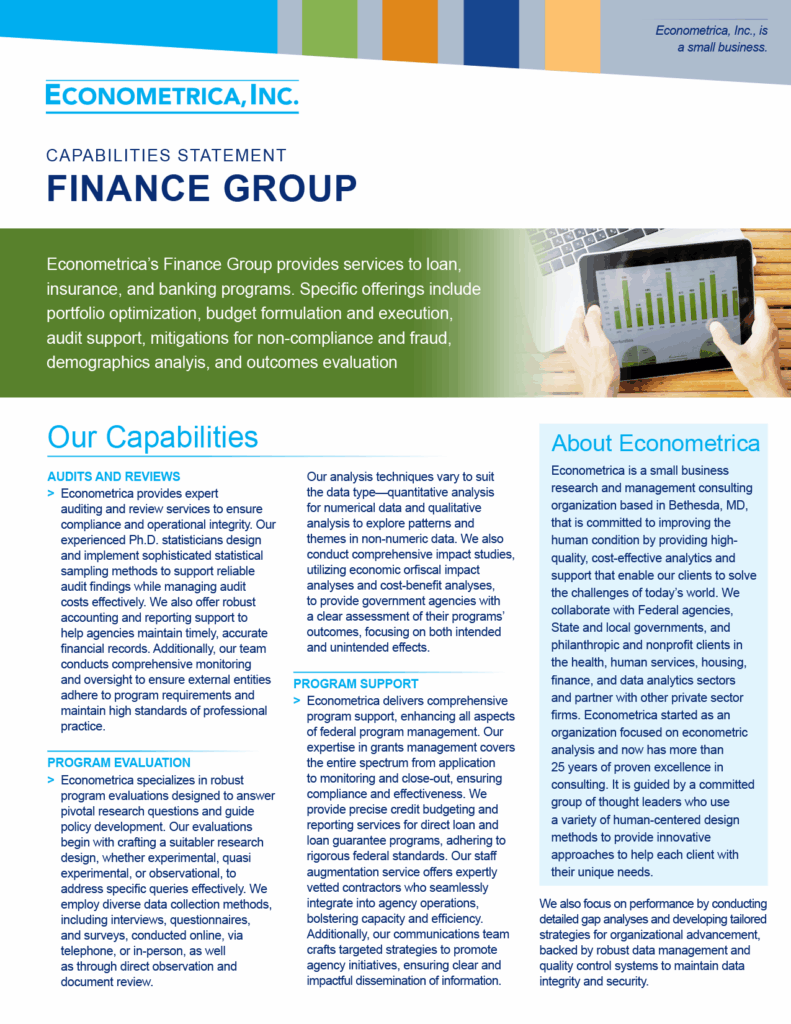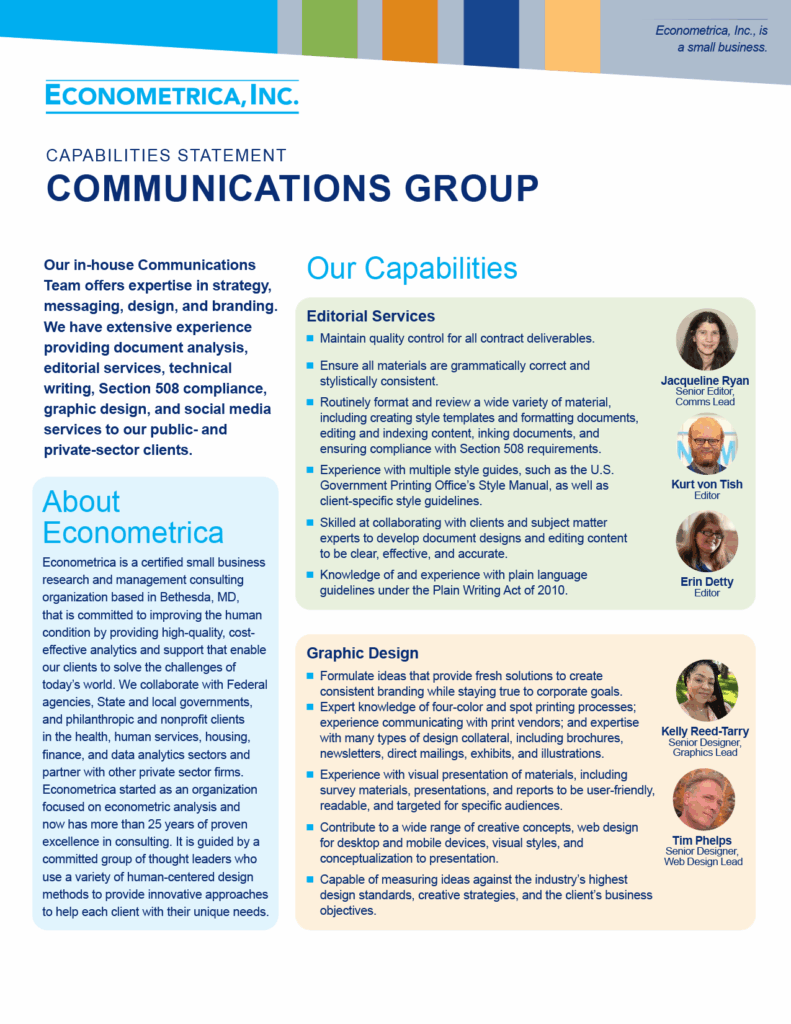Econometrica, Inc., a management and analytics consulting organization, today announced a public comment period to gather information for developing performance measures for Organ Procurement Organizations (OPO). By identifying independently validated measures, the project aims to strengthen accountability, trust, and alignment within the U.S. donation system and ensure it remains lifesaving and world leading for years to come. OPO Validated Measures.

Econometrica Maintains Continued Operations During Coronavirus Pandemic
 BETHESDA, MD – On March 13, President Trump declared a national emergency in response to the outbreak of coronavirus (COVID-19) nationwide. Econometrica, Inc., continues to monitor developments related to the coronavirus pandemic to ensure the safety of our staff, their families, and communities. We also are taking steps toward meeting our commitments to clients and partners and continue to provide the high-quality and timely services expected from Econometrica.
BETHESDA, MD – On March 13, President Trump declared a national emergency in response to the outbreak of coronavirus (COVID-19) nationwide. Econometrica, Inc., continues to monitor developments related to the coronavirus pandemic to ensure the safety of our staff, their families, and communities. We also are taking steps toward meeting our commitments to clients and partners and continue to provide the high-quality and timely services expected from Econometrica.
The following summarizes steps we have taken to date:
- Econometrica has mandated that all employees work full time from home for the foreseeable future. We are complying with guidelines from the Centers for Disease Control and Prevention (CDC) to halt gatherings of more than 50 people and to encourage social distancing.
- Employees working remotely have full access, using secure configurations, to Econometrica’s network resources, applications, and support, including communication tools to support telework. No project work will be interrupted by this move to a remote setup.
- Project teams in our Health, Housing and Community Development, General Services, Capital Markets, and Data Analytics groups are moving toward scheduling all meetings virtually and limiting travel. All business travel is temporarily suspended during this time.
- Staff members who work onsite at our clients’ offices continue to report to their respective agencies unless directed otherwise. We have been in contact with each client to develop contingency plans to address remote work should access to the client site is limited or an employee shows symptoms of COVID-19.
- We have regularly communicated prevention strategies and tips from CDC and the American Red Cross for keeping homes and workplaces safe. Everyone has been advised to call their doctors and follow CDC recommendations for self-quarantine should they show any symptoms related to COVID-19.
Coronavirus infections increase at an exponential rate, with symptoms including fever, cough, and shortness of breath. Social distancing seems to be effective in reducing the spread, and Econometrica wants its employees to feel safe and remain healthy. As this outbreak unfolds, Econometrica will continue to provide its high-quality services with no reduction in availability or commitment.
Founded in 1998, Econometrica is a research and management organization in Bethesda, MD, established to provide public- and private-sector clients with customized program support services. Econometrica works with multiple agencies to provide high-quality, cost-effective analyses, modeling, and economic evaluations. The company consistently receives exceptional scores from its clients and believes in three principles: technical capabilities, happy customers, and business development.
Coronavirus infections increase at an exponential rate, with symptoms including fever, cough, and shortness of breath. Social distancing seems to be effective in reducing the spread, and Econometrica wants its employees to feel safe and remain healthy.
View Related Posts
OPO Validated Measures Development Public Comment Opportunity
Econometrica, Inc., Leads Evaluation of HUD’s Rental Assistance Demonstration (RAD) Program, Examining Impact on Choice Mobility, Financial Viability, and Tenant Outcomes
Econometrica served as the prime contractor for an evaluation of the U.S. Department of Housing and Urban Development’s (HUD) program, Rental Assistance Demonstration (RAD) Choice Mobility, with support from the Urban Institute as a subcontractor. The RAD program enables public housing authorities (PHAs) to convert their public housing units into Section 8 housing with the goal of improving the physical condition and financial viability of converted properties while providing tenants with the opportunity to choose other affordable housing options.
Econometrica, Inc., Supports Centers for Medicare and Medicaid Services School-Based Services Technical Assistance Center for States in New 2024-2025 Webinar Series
Fifty-six million children and youth spend more than a quarter of their day at school in the United States. With today’s youth facing a changing and growing number of health challenges, especially around mental health, the ability of schools to help positively shape the social, physical, and mental growth of their students is vital. The COVID-19 pandemic highlighted and exacerbated many of these challenges, particularly the youth mental health crisis, which existed before COVID-19 but was worsened by the social isolation and other factors associated with the pandemic.

